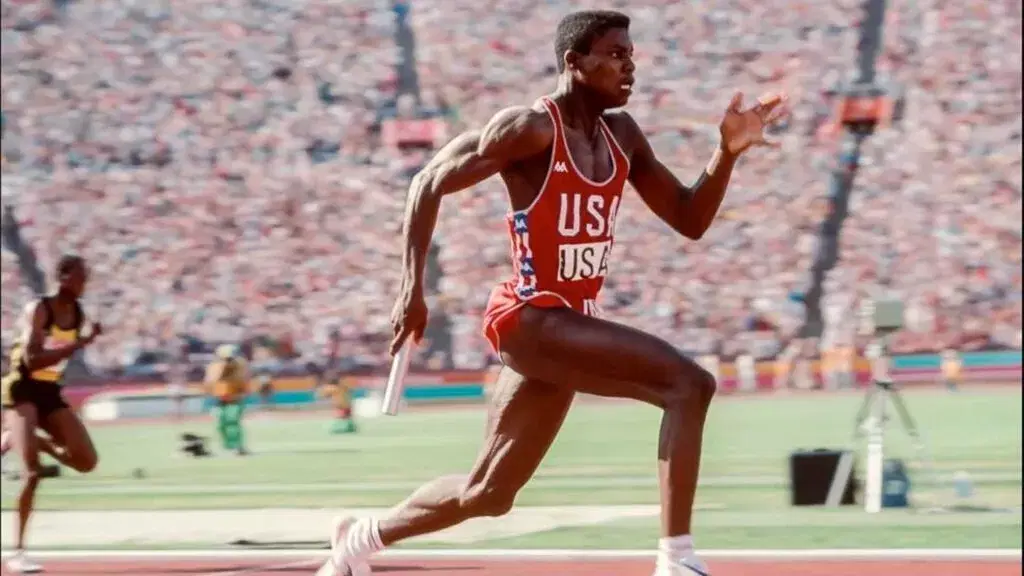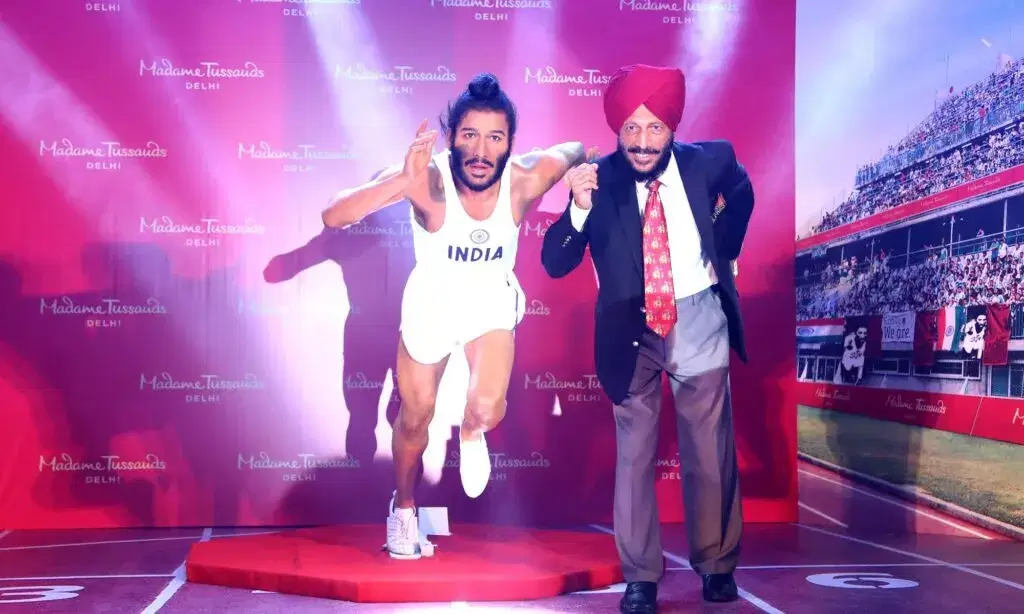Olympics A to Z: A brief history of Athletics

India will be aiming to end its medal drought in the quadrennial event.
Athletics is one of the most eagerly-awaited events at the Olympics. In the blink of an eye, an athlete can reach new heights at the quadrennial event. It is a sport that has created several legendary figures over the years.
The United States of America has been the most successful nation in Athletics. The Americans have claimed a whopping total of 797 medals, including 334 Gold. Great Britain has won 205 medals, whereas the now-defunct Soviet Union had claimed 193 medals.
Tokyo Olympics will feature a total of 48 Athletics sports track, field and combined events. The 50 km walk will be an exclusive event for men. Whereas, the synonymous event to men's decathlon will be the women's heptathlon.
In addition, the mixed 4x400m relay will make its debut at the Olympics. All the track and field events will take place at the Japan National Stadium. The venue for the marathon and race walk will be the Odori Park in Sapporo.
Notable athletes
Let's take a look at some of the historic figures in Athletics at the Olympic Games.
Jesse Owens
Considered as one of the greatest athletes ever, Jesse Owens achieved international fame at the 1936 Berlin Olympics. He won four Gold medals in 100m, 200m, 4x100m relay and long jump. The American is credited with crushing Adolf Hitler's myth of Aryan supremacy.
Carl Lewis

Carl Lewis is one of only three Olympic athletes to have won a Gold medal at four consecutive Olympic Games. A dominant sprinter and a long jumper, Lewis won a total of nine Gold medals across four editions from 1984 to 1996. Due to his achievements, he was voted World Athlete of the Century by the International Association of Athletics Federations (IAAF). Lewis also earned the title of Sportsman of the Century from the International Olympic Committee (IOC).
Paavo Nurmi
Nicknamed The Flying Finn, Paavo Nurmi dominated distance running in the early 20th century. He won a total of nine Gold medals across three Olympic Games between 1920 to 1928. At his peak, Nurmi was undefeated for 121 races at distances from 800m upwards. Throughout his 14-year career, he remained unbeaten in cross country events and the 10,000m.
Allyson Felix
Allyson Felix is the only female track and field athlete to ever win six Olympic Gold medals. The American is also the most decorated athlete in World Athletics Championships history, with 18 career medals to her name. However, she is not done yet and at 35, Felix will be in action in Tokyo 2020.
Usain Bolt
Widely considered as the greatest sprinter of all time, Usain Bolt is a world record holder in the 100m, 200m and 4x100m relay. The Jamaican gained worldwide fame for his double Sprint victory in world record time at the 2008 Beijing Olympics. Bolt is an eight-time Olympic Gold medalist and is the most successful male athlete of the World Championships.
Interesting Olympics Trivia

- Finland is the third most successful country (active) in Athletics at Olympic Games. The Eastern European country has bagged a total of 114 medals, including 48 Gold.
- The only Olympian ever to be awarded the Nobel Prize was Philip Noel-Baker of Great Britain. He won the Silver medal in the 1500m at the 1920 Olympics. In 1959, he was awarded the Nobel Peace Prize for his support of multilateral nuclear disarmament.
- At the 1984 Olympics, Nawal El Moutawakel of Morocco won the inaugural 400m hurdles event. This made her the first-ever Muslim female to win an Olympic medal (Gold).
- Danish journalist Edgar Aaybe was recruited into the combined Denmark-Sweden tug of war team as a last-minute substitute. He went onto win a Gold medal at the 1900 Olympics.
- American Frank Shorter, who won the Gold medal in the marathon at the 1972 Munich Olympics, was actually born in Munich.
Athletes from pre-independent India at the Olympics
Norman Pritchard was the first-Asian born athlete to win an Olympic medal. He was born in Calcutta and bagged two silver medals in the 200m and 200m hurdles at the 1900 Paris Olympics. He returned to India after that but permanently moved to England in 1905. Later, he shifted to the US to make a mark in Hollywood and acted in quite a few films there, taking a new name as Norman Trevor. As such, it remains a debatable topic as to whether he should be considered an Indian.
In the year 1920, India sent its first Olympic team. The team had three athletes - Purma Bannerjee, Phadeppa Chaugule and Sadashiv Datar. At the 1924 Paris Olympics, notable Indian athletes were C.K. Lakshmanan, Mahadeo Singh, Pala Singh and Dalip Singh. Four years later in Amsterdam, the latter of those was accompanied by the likes of Gurbachan Singh, Chavan Singh and S. Abdul Hamid. However, none of these athletes were able to leave any significant mark on the grandest stage.
Athletes from independent India at the Olympics

Milkha Singh was the first sporting superstar of independent India. His performance at the 1960 Rome Olympics, continues to inspire Indian athletes. He had finished in fourth place in the 400m race, breaking the national record along the way. At the 1984 LA Olympics, Shiny Wilson became the first Indian woman to reach the semi-final of an Olympic event. Payyoli Express PT Usha also finished in the fourth place in the 400m hurdles event that year.
Usha missed out on a podium place by a heart-wrenching 0.01 seconds. Another notable performance came from Anju Bobby George. She finished in fifth place in the long jump event at the 2004 Athens Olympics. However, an Olympic medal in Athletics continues to elude India.
At the Tokyo Olympics, several Indian athletes will be aiming to script history. This time around, the country's biggest medal hopes will be Neeraj Chopra, Tajinderpal Singh Toor and Kamalpreet Kaur. Chopra, who is India's best javelin thrower, is currently rubbing his shoulders alongside some of the world's best in Europe.
[KH_RELATED_NEWS title="Related News |Article Continues Below"][/KH_RELATED_NEWS]
Shot putter Toor, on the other hand, recently qualified for the Tokyo Olympics. He threw to a distance of 21.49m at the Indian Grand Prix 4. As for Kaur, she recently broke the discus throw national record, recording 66.59m in the same competition.
They will be aiming to end India's long drought for an Athletics medal in Olympics. Hopefully, Tokyo Olympics will be a landmark event for the Indian athletes. It might turn out to be the one that will change the Athletics scenario in the country forever.
For more updates, follow Khel Now on Twitter, Instagram and join our community on Telegram.
Where passion meets insight — blending breaking news, in-depth strategic analysis, viral moments, and jaw-dropping plays into powerful sports content designed to entertain, inform, and keep you connected to your favorite teams and athletes. Expect daily updates, expert commentary and coverage that never leaves a fan behind.
- 'No one came after my injury' - Mirabai Chanu calls for consistent support from fans
- LA28 reveals competition schedule for Paralympics 2028; check full sport-wise schedule
- LA Olympics 2028: Check full competition schedule, dates, venues of all sports
- Abhinav Bindra named torch bearer for 2026 Winter Olympics
- Why is August 7 celebrated as National Javelin Day?
- Top 10 achievements by Indian players in world badminton
- New Zealand, Pakistan likely to miss the LA 2028 Olympics as ICC set to approve regional qualifying format - Reports
- LA28 Olympics: Cricket schedule announced, gold medal match to take place on this date
- LA Olympics 2028 full schedule out, look at potential key dates for Indian contingent
- Does Neeraj Chopra hold any Olympic record in men's javelin throw?